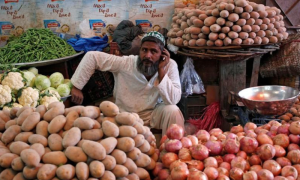UNITED NATIONS: Around 1.6 million worldwide fall ill from consuming contaminated food, which kills 420,000 people every year, the Food and Agriculture Organization (FAO) and World Health Organization (WHO) reported.
Two specialized agencies of the United Nations drew attention to world food safety concerns on World Food Safety Day, which was marked on Wednesday. This year, the emphasis is on the function of long-standing food safety rules and practices, which guarantee the food’s safety.
Dr. Maria Neira, WHO Assistant Director-General, said in a press statement, “Food safety has a direct impact on our health.”
According to her, consuming food contaminated with germs, viruses, parasites, or chemicals can result in over 200 ailments, ranging from cancer to diarrhea. Dr. Neira stated in a video message that we frequently only consider food safety when we become ill, despite foodborne illnesses being wholly preventable.
Safe food facilitates nutrition absorption and fosters human growth. No one should perish from eating. These fatalities can be avoided. A number of groups, including policymakers, have been urged to act by WHO. They are advised to set up effective national food safety systems that adhere to established criteria. Food enterprises are urged to collaborate with their staff, vendors, and other stakeholders to create a culture of food safety, and workplaces and educational institutions should promote proper food handling.
Consumers are also directed to play their role, for example, by following WHO recommendations and practicing safe food handling at home, like washing hands before making food and using separate utensils and equipment, such as cutting boards and knives, while handling raw foods.
FAO will simultaneously launch a website to assist the food industry in following global food hygiene standards. The website, which is referred to as a toolbox, strives to safeguard consumer health and advance ethical business practices in the food industry.
As the website can be viewed on portable mobile devices, which are much more common in poor countries than laptops or other computers, special attention has been paid to small companies and farmers there.
On the website, there are recommendations for personal hygiene, including advice on how to inform people visiting a food manufacturing site, the right way to wash your hands, how often to do it, and what to wear.
FAO Food Safety Officers and a team from the Department of Food Science at the Canadian University of Guelph collaborated to produce and review the technical content. The toolbox may be expanded to offer more in-depth guidance for other sectors of the agri-food system, like fisheries, the UN agency said. “Going forward, the plan is to collect feedback and possibly expand the toolbox,” it added. — APP


























